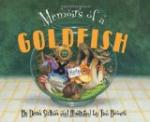I have personally no hesitation in advancing the claim that there are a few elementary principles and fundamental facts in all departments of human knowledge which every person who expects to derive any advantage from intelligent society should not only once learn but should forever remember. Not to know them is practically the same thing as being without ordinary means of communication. One may not find it necessary to remember the binomial theorem or the algebraic formula for the contents of a circle, but he should at least have a formal acquaintance with Julius Caesar, Hannibal, Charlemagne, Martin Luther, Francis I, Queen Elizabeth, Louis XIV, Napoleon I—and a dozen or so others. An educated man must speak the language of educated men.
I do not think it too much to demand that in history he should have in mind, at least approximately, one important date in each century in the chronicles of France, England, Italy and Germany. That is not much, but it is a good start. And shall we say ten dates in American history? He should, in addition, have a rough working knowledge of the chief personages who lived in these centuries and were famous in war, diplomacy, art, religion and literature. His one little date will at least give him some notion of the relation the events in one country bore to those in another.
I boldly assert that in a half hour you can learn by heart all the essential dates in American history. I assume that you once knew, and perhaps still know, something about the events themselves with which they are connected. Ten minutes a day for the rest of the week and you will have them at your fingers’ ends. It is no trick at all. It is as easy as learning the names of the more important parts of the mechanism of your motor. There is nothing impossible or difficult, or even tedious, about it; but it seems Herculean because you have never taken the trouble to try to remember anything. It is the same attitude that renders it almost physically painful for one of us to read over the scenario of an opera or a column biography of its composer before hearing a performance at the Metropolitan. Yet fifteen minutes or half an hour invested in this way pays about five hundred per cent.
And the main thing, after you have learned anything, is not to forget it. Knowledge forgotten is no knowledge at all. That is the trouble with the elective system as usually administered in our universities. At the end of the college year the student tosses aside his Elements of Geology and forgets everything between its covers. What he has learned should be made the basis for other and more detailed knowledge. The instructor should go on building a superstructure on the foundation he has laid, and at the end of his course the aspirant for a diploma should be required to pass an examination on his entire college work. Had I been compelled to do that, I should probably be able to tell now—what I do not know—whether Melancthon was a painter, a warrior, a diplomat, a theologian or a dramatic poet.




